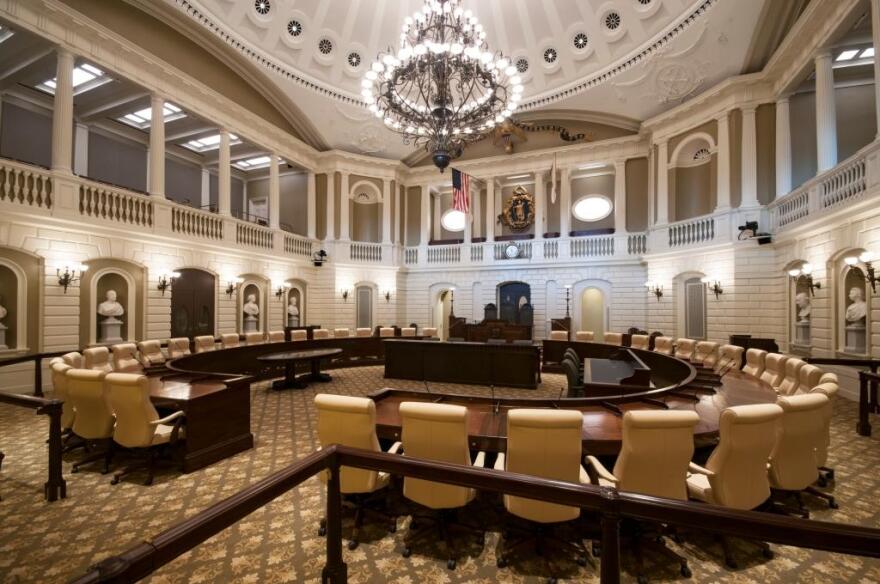Beacon Hill lawmakers are on their six-week holiday break, with the midpoint of the two year legislative wrap up landing just before Thanksgiving. State House News Service reporter Sam Drysdale explains which policy items got settled and which will end up as leftovers for next year.
Sam Drysdale, SHNS: The main bills that the Legislature has passed have been big supplemental spending bills. They've added about $3 billion to the bottom line of the $50 billion fiscal year 2025 budget, for everything from additional money for family emergency homeless shelters, early education and care to relief for community health care hospitals. Other than that, the only really major policy bill that they have passed and Governor Healey has signed, was a bill to expand protections for people seeking abortion and reproductive healthcare and transgender identity care to try to shore up defenses from federal and out of state attacks.
Carrie Healy, NEPM: So, what does that leave up in the air?
It leaves quite a lot. The Senate and House have each passed a number of bills that the other branch has yet to take up in the Senate. They've passed bills related to protecting school and public library books from book bans, creating legal protections for people who administer fentanyl test strips, and creating a statewide policy to ban cell phones in school classrooms. Those are now up to the house for consideration.
In the House, they've passed a whole different slate of bills. They're trying to make significant investments in public higher education, campus infrastructure. They're looking to mandate sweeping reforms in how the state approaches early literacy for young readers, and just this week, they passed a bill to expand workplace violence protections for health care workers.
For some perspective on this, nearly 400 laws were passed in the last two year legislative session. So given that only 66 laws have been passed so far this year, is it expected that lawmakers will reshape their approach to lawmaking when they return in January?
The two year Legislative session does usually pick up a little bit in the second year of the session. So, I think we can expect to see some faster lawmaking next year.
This is when a lot of trading starts happening between the chambers. The House might say, “You know, this bill is really important to us,” and the Senate might say, “This bill is really important to us,” and they might do a swap on a formal session day. They'll both decide to take up the bill. That's a priority for the other chamber in order to get their bill across the finish line.
So, I think we might see a little bit more action going into next year, but they are going to have to pick up the pace if they want to, to reach the same number that they reached last session.
Before I let you go, can you put this into context for us? Why was it so significant that House and Senate lawmakers moved quickly and overwhelmingly to rescind those old Article V Convention calls? And what is their near unanimous vote tell us about the stakes they saw in preventing any opening of the U.S. Constitution to potential conservative driven amendments.
They really wanted everyone to know that Massachusetts makes the 17th state in the country to take this kind of vote, to rescind any former constitutional convention requests. That means that conservatives in Washington won't be able to make a two thirds majority, to invoke an previously unused section of the Constitution, to invoke a constitutional convention.
And the Democrats who led this resolution said that this was so important, because they fear a constitutional convention led by the Republicans in Washington at the moment could shake constitutional authority. [They] felt it was really important for Massachusetts to do its part to prevent that and to continue constitutional stability.






